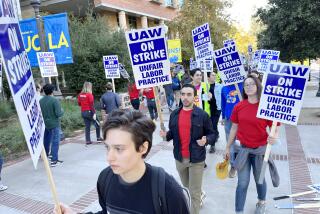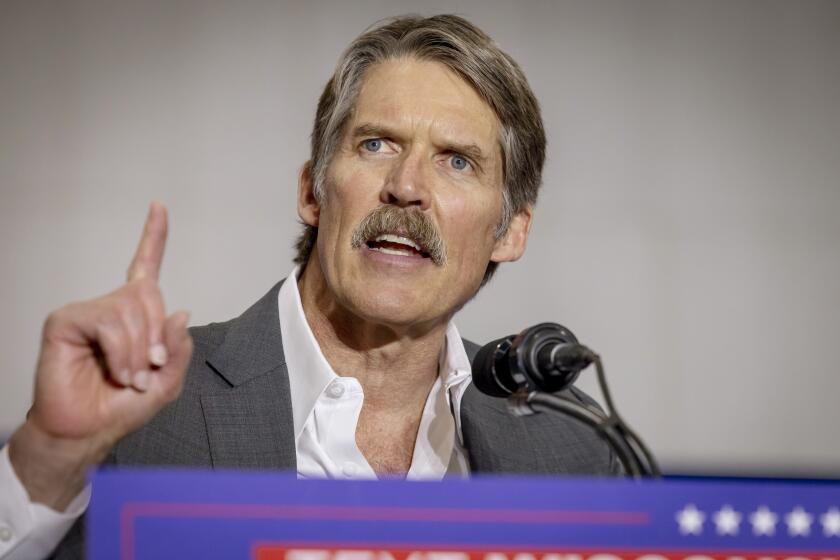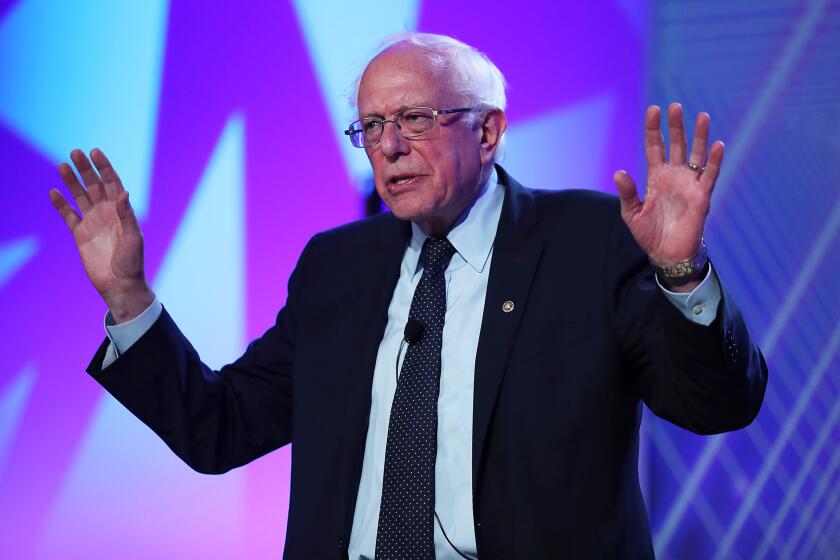State’s Electric Bill Gets Lighter
California now expects its electricity bill to be 20% less than estimated as recently as two months ago, opening the door for utility rate reductions or a smaller energy bond sale, the Davis administration said Friday.
Even so, the amount of savings passed on to consumers is likely to be closer to 5%, the administration added.
The discrepancy and its explanation are an extension of the ongoing political squabble between Gov. Gray Davis and Public Utilities Commission President Loretta Lynch. Administration officials said residential customers won’t see much relief because recent actions by the PUC have negated most of the gains from lower power prices and greater conservation.
Specifically, officials said, the PUC erred in giving business customers too much time to opt out of the state’s power-buying system, and in holding up a bond sale to repay expensive energy loans.
Lynch disagrees on both points. The real problem, she said again Friday, is that California purchased too much power at too high a price during the energy crisis. The best way to save consumers money, she suggested, is to renegotiate the state’s energy contracts.
California has been purchasing massive quantities of power since January because the state’s large private utilities could no longer do so, and mass blackouts threatened to cripple the state’s economy and endanger the public. The utilities, Pacific Gas & Electric, San Diego Gas & Electric and Southern California Edison, ran up billions of dollars in debts because they were forced to buy power for far more than they could legally charge customers.
In August, state officials estimated the department’s power costs for 2001 and 2002, the time the state plans to be in the power business, at $21.45 billion. The new estimate, released Friday, pares that figure to $17.2 billion.
But in what consumer groups angrily called a “jailbreak,” Davis administration officials disclosed for the first time Friday that large businesses fled the state’s power-buying system en masse this summer, opting to cut their own deals with energy companies rather than shoulder their share of the state’s power costs.
Big Businesses Bail Out, Leave Tab to Consumers
The PUC announced in June that it was putting a lid on the so-called direct-access deals because if the businesses left the system, homeowners and other small ratepayers would have to pay a larger share of the costs the state incurred buying power to avert blackouts in the energy crisis.
However, the commission did not act until last month, and in the meantime numerous businesses opted out of the state system. Direct-access participation jumped from 2% to 13% of the overall power load being purchased by the California Department of Water Resources, according to the administration’s latest numbers.
“Unfortunately, all of the savings generated by the improving market conditions will not be immediately passed on to ratepayers,” said Pete Garris, who oversees the department’s power-buying division. “Put simply, the PUC’s delay in suspending direct access means [the state’s] costs will have to be recovered from fewer customers and the impact will be greatest on smaller, retail customers.”
State Treasurer Phil Angelides, who requested that the PUC suspend direct access earlier in the summer, blasted the commission Friday, saying the “stampede” of businesses would shift as much as $8 billion in costs to consumers over the next decade, as they pay for the long-term contracts the state signed this year to ensure a stable source of electricity.
“What’s happened here is one of the most damaging things that’s happened to consumers in this energy crisis,” Angelides said.
And consumer groups were even more critical, accusing the PUC of letting big business escape the costs of the energy crisis.
“The PUC first gave Edison their bailout,” said Doug Heller of the Foundation for Taxpayer and Consumer Rights, referring to the legal settlement recently approved by the commission to rescue the utility. “Now we find that big business is in effect getting bailed out of the energy crisis. These were the two groups, the big business guys and the utilities, that got us in this mess in the first place.”
But Lynch, the PUC president, said the number conflicted with the commission’s figures, which showed direct access participation at roughly 8% of the overall load. That, she said, was similar to the number of businesses participating in direct access at the beginning of the year, a little more than 7%, before the energy crisis erupted. It fell to a low of 2% during the crisis because some energy companies realized they could make more money on the open market and breached their deals with state businesses, she said.
Lynch accused Angelides and the Davis administration of revisionist history, saying the commission postponed its decision at the administration’s request. The commission then put off the decision again because the Legislature was considering its own solution to the problem, she said.
The real problem, Lynch said, is that the state has too much electricity under contract at too high a price. If California had not purchased too much power, consumers would not have to pay for it, she said.
“If people are leaving the system, those are fewer people [the state] needs to serve,” Lynch said. “The problem, once again, is the long-term contracts. We need to renegotiate these contracts.”
Also adding to the state’s financial burden is the fallout from a $4.3-billion energy loan the state took out this summer that it will not be able to repay in time, driving up the loan’s interest rates.
The loan was supposed to be repaid by the state’s planned $12.5-billion energy bond sale to replenish the billions spent from the state budget on electricity this year. But the bond deal is now in limbo, in part because the PUC has refused to take action on a rate agreement that is required for the bond sale to move forward. As a result, a series of escalating interest rates spelled out in the loan deal are being triggered, which will soon force the Department of Water Resources to make payments to the bankers from its reserve.
Davis and Aides Stay Tight-Lipped on Strategy
In a related development, the newly created state public power authority, headed by S. David Freeman, met Friday to consider approving millions of dollars worth of energy conservation and generation projects, but none were adopted because the authority learned it had no money to finance them.
If the bond deal ever takes place, the state may be in a position to meet its financial obligations and possibly lower utility rates, which were raised this year in response to the energy crisis. The state may also have the option of floating a smaller bond, though advisors to the governor called that less likely.
In another action that could reduce rates, Davis administration officials confirmed Friday that they are planning to renegotiate some of the long-term power contracts, as The Times reported Thursday. The contracts have been criticized by consumer groups and some legislators for being inflexible and expensive.
But Davis advisors remained tight-lipped on the specifics, saying only that they have a strategy to convince power companies to open talks.
“I don’t think it’s real smart to tell you that,” said Barry Goode, the governor’s legal affairs secretary.
*
Times staff writer Carl Ingram contributed to this report.
More to Read
Start your day right
Sign up for Essential California for news, features and recommendations from the L.A. Times and beyond in your inbox six days a week.
You may occasionally receive promotional content from the Los Angeles Times.






